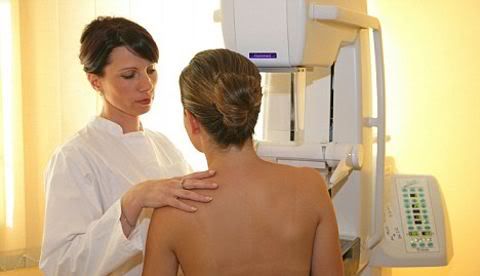
Washington, Sept 26 : Researchers at Wake Forest Baptist Medical Centre have identified 16 new genes, or
proteins, all involved in iron metabolism, that provide better prognostic information
about breastcancer than conventional, standard markers of prognosis.
The discovery brings them one step closer to being able to better predict which patients have the best chance of surviving breast cancer.
The researchers looked at 61 genes involved in iron regulation to see how many of them were related to breast cancer prognosis and found that almost half were.
Scientists have identified a new gene that may increase the risk of breast cancer, according to a new study from
Finland.
In the study, mutations in this gene, called Abraxas,were linked to cases of hereditary breast cancer.
Researchers have now identified more than 10 genes that increase breast cancer risk; perhaps the most well-known of these are the
BRCA1 and BRCA2 genes. But only about 20 percent of
women with a family history of breast cancer have mutations in BRAC1 or BRAC2 — meaning in many cases, it's likely other genes are at work.
The mutation does not appear to be common — it was found in 2.4 percent of families with a history of breast cancer. But importantly, the mutation was not found in anyone without breast cancer in the study.
Because the study was conducted in Finland, future studies will need to investigatehow common the mutation is in other countries, said study researcher Roger Greenberg, an associate professor of cancer biology at the University of Pennsylvania School of Medicine.
In the future, women with a family history of breast cancer might be tested for the Abraxas mutation, Greenbergsaid.
Greenberg and colleagues found the Abraxas mutation in three of 125 breast cancer patients from families with a history of the condition. This gene had been suspected to play a role in breast cancer risk because it interacts with BRCA1.
When the researchers looked at an additional 991 breast cancer patients, they found the Abraxas mutation in one woman, who also turned out to have breast cancer in her family. None of the 868 healthy patients in the study had the Abraxas mutation.
The mutated Abraxas gene prevents cells from fixing damaged DNA, increasing the risk that a cell will become cancerous. The gene may increase the risk of other cancers as well. Indeed, one patient in the study was diagnosed with both breast and
endometrial cancer, and some patients with the Abraxas mutation had family members with
lung cancer, lip cancer and
lymphoma.
More research is needed to know exactly how much of an increase in breast cancer risk the Abraxas mutation brings. But Greenberg noted women in the study with this mutation were diagnosed around the same age as those with BRCA1 and BRCA2 mutations — in their mid-40s.
Women with a mutation in BRCA1 or BRCA2 are about five times more likely to develop breast cancer in their lifetimes compared with women who do not have this mutation, according to the National Cancer Institute.
"Identifying more of these mutations will make it easier for patients to know their risk of developing breast cancer," said Dr. Kristin Byrne, chief of breast imaging at Lenox Hill Hospital in New York City, who was not involved in the study. Such genetic information may even help doctors better diagnose breast cancer. Most patients with the Abraxas mutation in the study had a type of breast cancer called lobular carcinoma, which is harder to detect on a mammogram. Knowing that a patient has this mutation might mean doctors use additional screening methods, such as MRI, Byrne said.
The study is published today (Feb. 22) in the journal Science Translational Medicine.
Pass it on: Some cases of hereditary breast cancer may be caused, in part, by mutations in a gene called Abraxas.
 Washington, Sept 26 : Researchers at Wake Forest Baptist Medical Centre have identified 16 new genes, or proteins, all involved in iron metabolism, that provide better prognostic information about breastcancer than conventional, standard markers of prognosis.
Washington, Sept 26 : Researchers at Wake Forest Baptist Medical Centre have identified 16 new genes, or proteins, all involved in iron metabolism, that provide better prognostic information about breastcancer than conventional, standard markers of prognosis.

0 comments:
Post a Comment